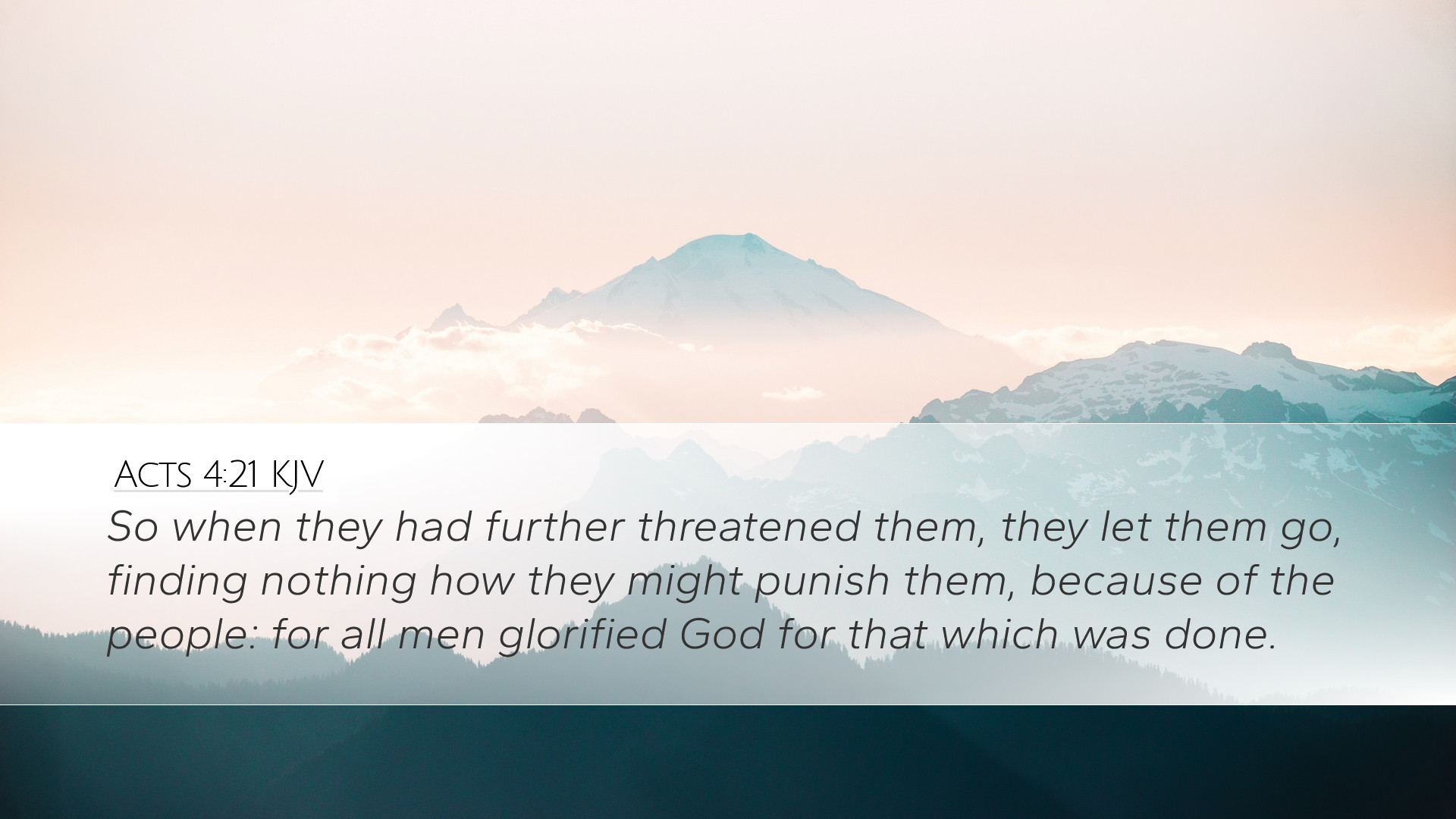Commentary on Acts 4:21
Acts 4:21 states: "So when they had further threatened them, they let them go, finding nothing how they might punish them, because of the people: for all men glorified God for that which was done."
Contextual Background
This verse falls within the broader narrative of the early church's experiences of persecution following the healing of a lame man and the subsequent preaching by Peter and John. The intensifying opposition from the religious authorities highlights the conflict between the emerging Christian faith and established religious practices.
Commentary Insights
General Observations
Both Matthew Henry and Albert Barnes emphasize the significance of the apostles' boldness in the face of threats. The mention of "further threats" indicates a sustained effort by the authorities to suppress what they deemed blasphemous activities. This dynamic is crucial as it reflects the early church's reliance on God rather than human authority.
Analysis of the Text
- Threats and Intimidation: The authorities resorted to threats, which demonstrates their inability to counteract the undeniable work of God among the people. As Adam Clarke points out, the miraculous healing was undeniable, providing a basis for the public's admiration and subsequent glorification of God.
- Public Sentiment: The phrase "for all men glorified God" indicates that the miraculous acts had created a significant impact among the people. This public approval creates a barrier for the authorities who cannot punish the apostles without inciting further unrest.
The Role of Divine Providence
The theme of divine providence runs throughout the Book of Acts. The inability of the authorities to punish the apostles is indicative of God's hand actively working to protect and advance His mission. Both Henry and Barnes highlight that the presence of the Holy Spirit among the apostles provided them with courage and wisdom beyond their natural capacities.
Theological Implications
- Authority vs. Divine Will: This verse vividly illustrates the tension between human authority and divine will. The threats made by the authorities reflect a misunderstanding of ultimate power and the reality of God's sovereignty at work in the world.
- Public Witness: The glorification of God by the people serves as a powerful testimony to the workings of the Holy Spirit. As Barnes notes, the public's response underscores the burgeoning faith and acceptance of the apostles' message amidst official opposition.
Practical Applications
The historical context and insights from these commentaries lead to several practical applications for today's believers and church leaders:
- Believers are called to stand firm in their faith despite societal pressures or threats. The boldness of Peter and John serves as a model for contemporary Christians facing opposition.
- The church must maintain a posture of reliance on God’s providence. Trust in God is essential when human authorities seek to intimidate or silence the message of Christ.
- Encouraging a culture of glorifying God can transform communities. The early church’s ability to inspire praise among the people serves as an exhortation for today’s believers to live in a way that points others to God.
Conclusion
Acts 4:21 encapsulates a pivotal moment in the life of the early church, where threats of punishment meet the undeniable work of God among His people. The commentaries of Henry, Barnes, and Clarke collectively encourage readers to grasp not only the historical context but also the enduring implications of this text for contemporary faith and practice.


